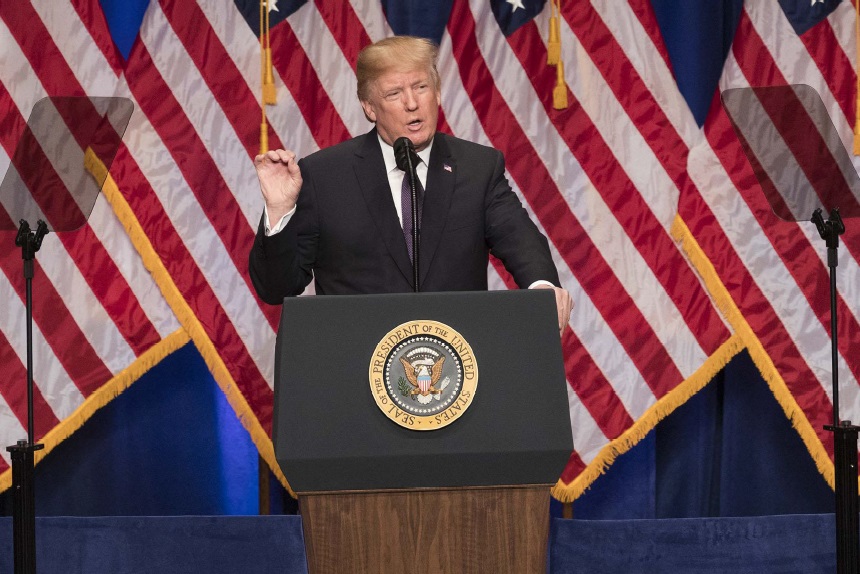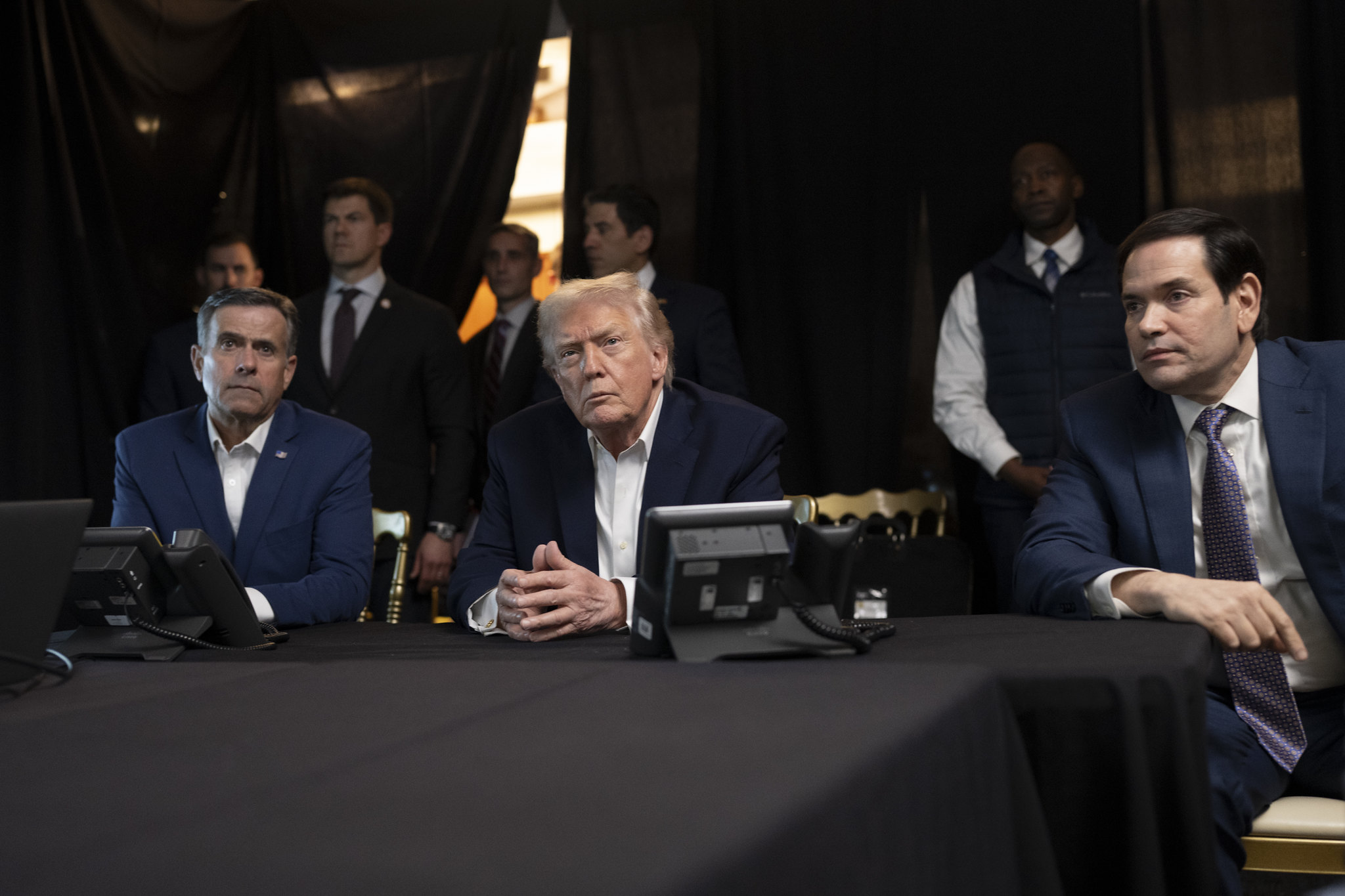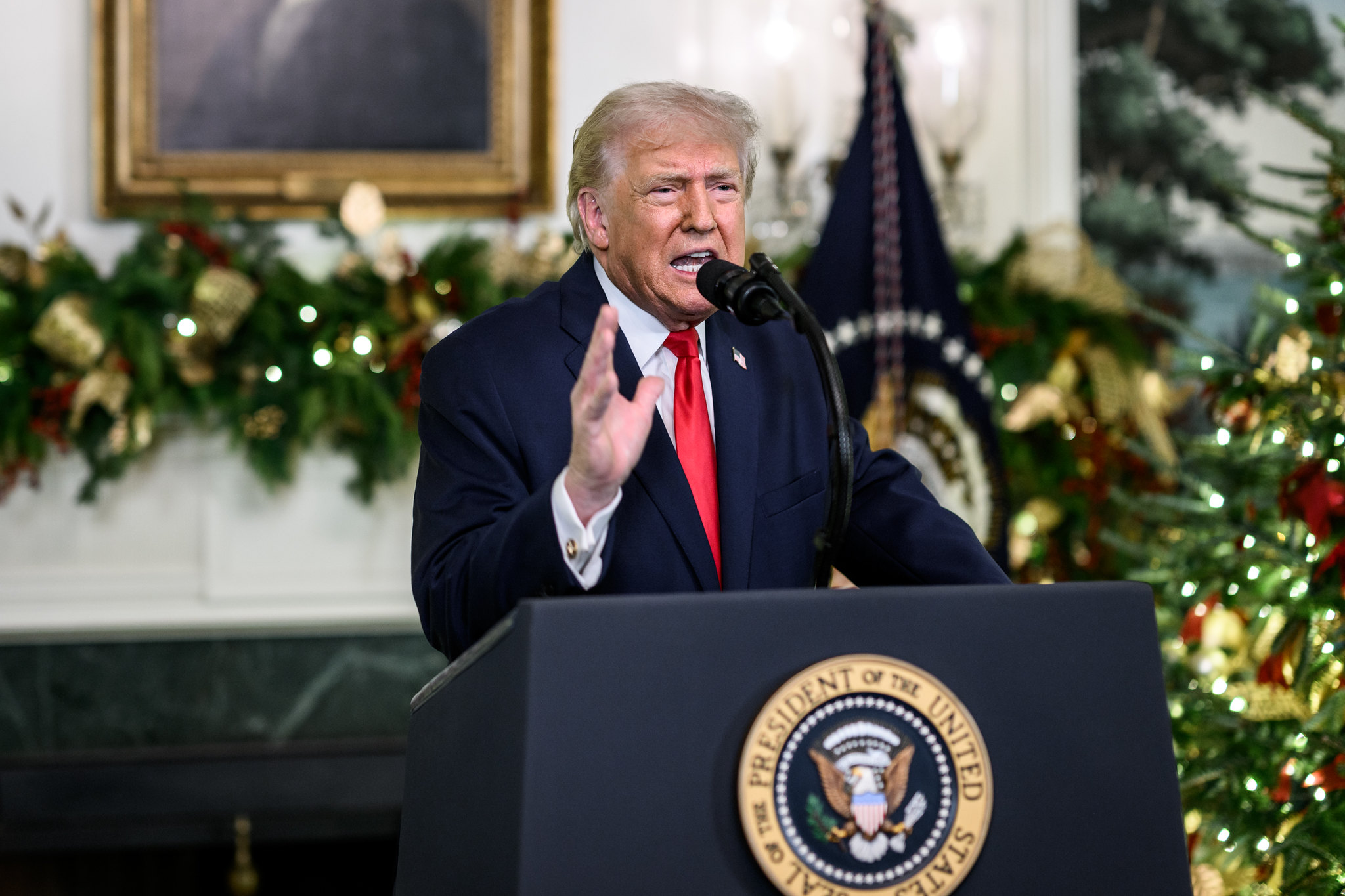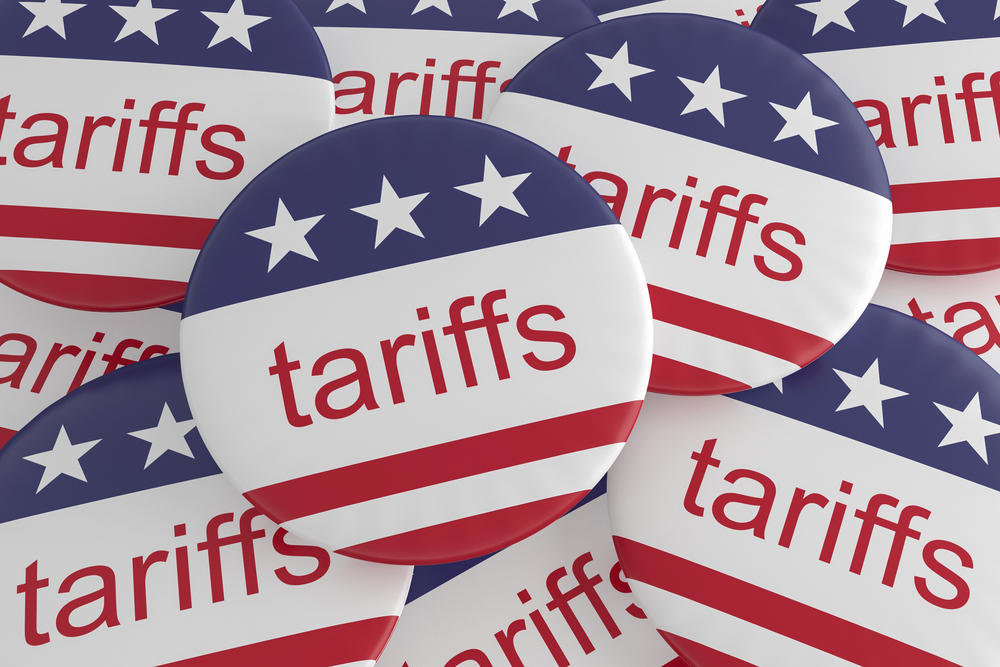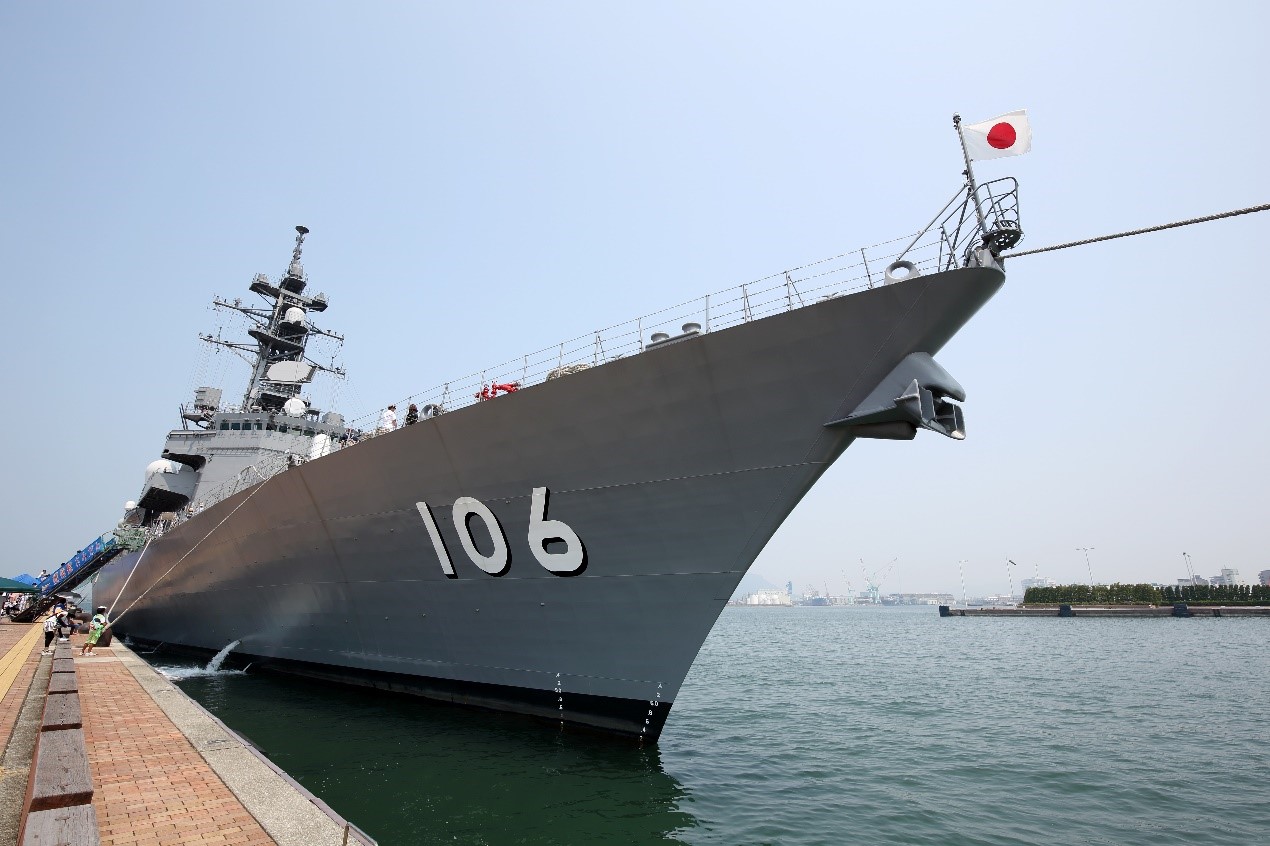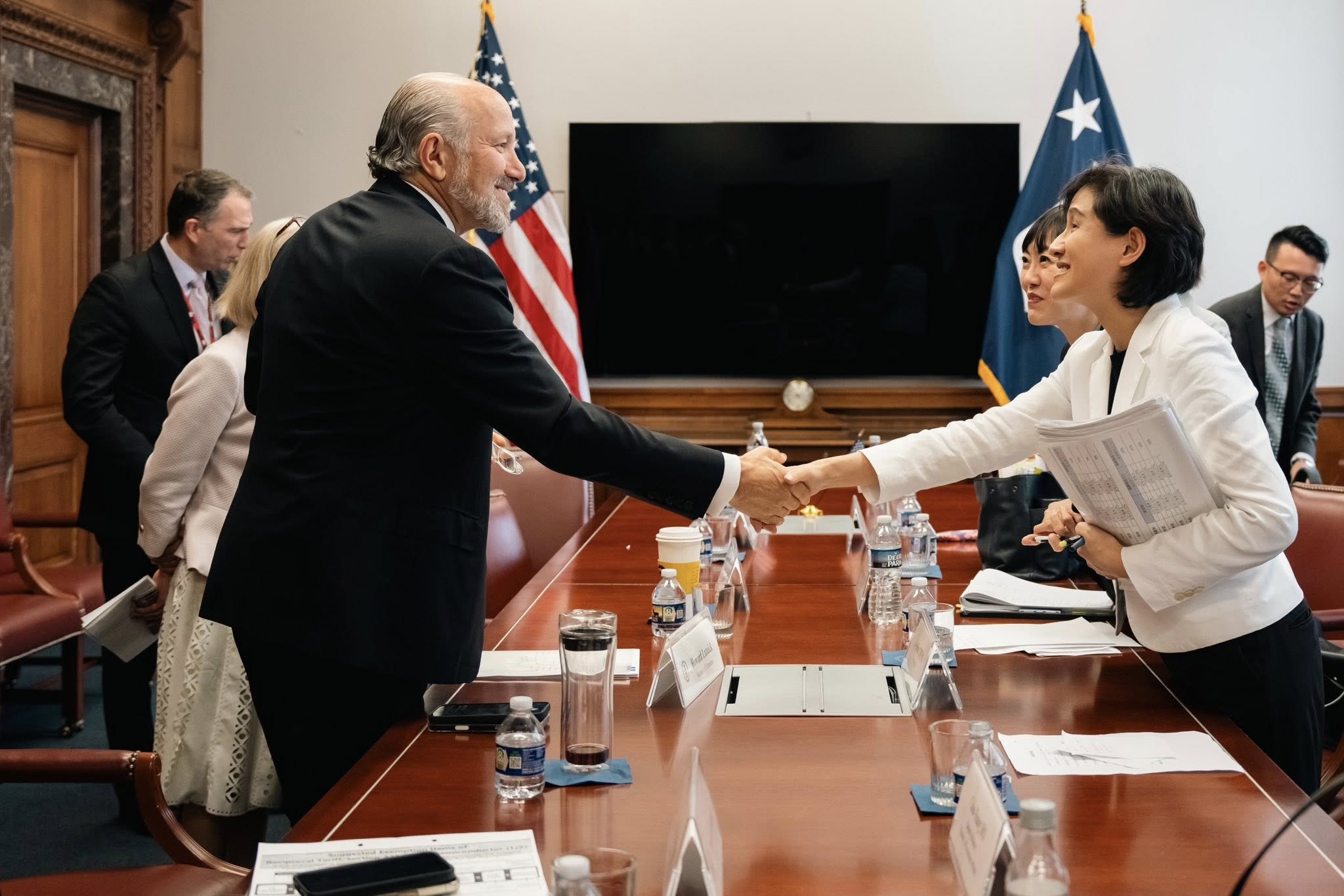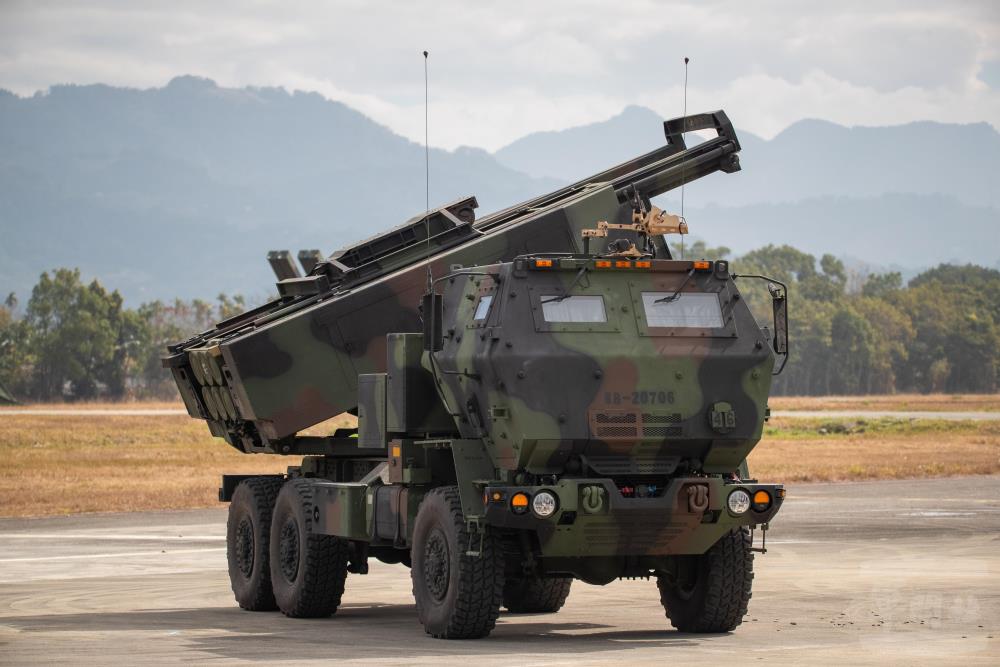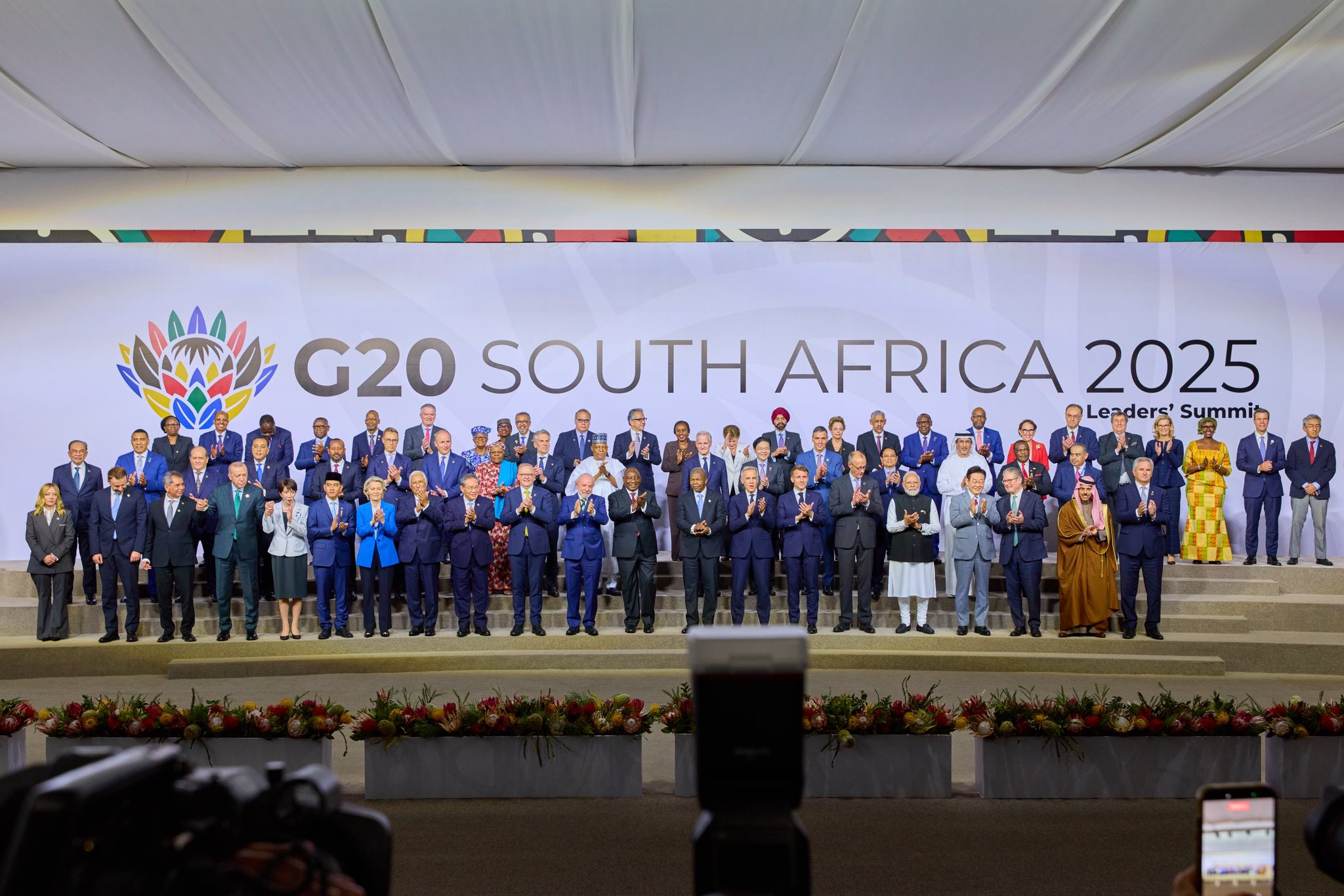Trump's National Security Strategy and Taiwan's Changing Security Environment

Trump announces new National Security Strategy that intends to maintain, or perhaps increase, its presence in the Indo-Pacific is seen as a positive development for Taipei. Source: Joyce N. Boghosian, U.S. Pacific Command, http://www.pacom.mil/media/image-gallery.aspx?igphoto=2001858645
Newsletter 2018 No. 1
Trump’s National Security Strategy and Taiwan’s Changing
Security Environment
Dr. J. Michael Cole
Taipei-based Senior Fellow,
China Policy Institute,University of Nottingham,UK,
Associate Researcher,
French Centre for Research on Contemporary China,
Chief Editor, Taiwan Sentinel
January 8, 2018
Focusing on confronting undemocratic forces and promoting a balance of power that favors the U.S. and its partners, President Donald Trump’s new National Security Strategy (NSS) released on Dec. 18 struck a positive note with many security analysts in Asia who were looking for signs of continued engagement. While only one direct reference is made to Taiwan in the entire document, any signalling that the U.S. intends to maintain, or perhaps increase, its presence in the Indo-Pacific is seen as a positive development for Taipei, whose ability to counter pressure from Beijing is largely contingent on the security umbrella the U.S. has been providing since the end of World War II.
All in
The 55-page document envisages a struggle with revisionist forces (China and Russia are the two main targets), two countries that are “attempting to erode American security and prosperity” and which are “determined to make economies less free and less fair, to grow their militaries, and to control information and data to repress their societies and expand their influence.”
This struggle, the NSS states, will require “favorable balances of power” sustained through “a strong commitment and close cooperation with allies and partners because allies and partners magnify U.S. power and extend U.S. influence.” Those allies “share our interests and responsibility for resisting authoritarian trends, contesting radical ideologies, and deterring aggression.”
Encouraging for Taiwan, the NSS indicates that its vision for the Indo-Pacific “excludes no nation,” adding that the U.S. “will redouble our commitment to established alliances and partnerships, while expanding and deepening relationships with new partners that share respect for sovereign, fair and reciprocal trade, and the rule of law.” It also commits to “reinforce our commitment to freedom of the seas and the peaceful resolution of territorial and maritime disputes in accordance with international law.”
Combined with the recent appointment of Randall Schriver, a friend of Taiwan, as Assistant Secretary of Defense for Asian and Pacific Affairs, and Defense Secretary Jim Mattis’ ostensible determination to maintain a robust military presence in Asia, the prospects for Taiwan appear, on the whole, to be rather positive.
When push comes to shove
However, some caution is in order. Dubbed the “America first” strategy, the new NSS establishes a hierarchy of priorities that, per some readings, leaves in doubt the U.S. commitment to longstanding alliances—entanglements, in the eyes of Trump and many of his ideological kin, that have undermined rather than reinforced U.S. interests. Two issues in particular, the economy and the North Korean nuclear/missile program, stand out as priorities in the new NSS, meaning that others which are not seen to pose a direct and immediate threat to the U.S., could take a backseat.
And this is where Taiwan will have to show extreme caution and prepare for contingencies where the U.S. security umbrella may be compromised. Those include scenarios in which developments are seen by the Trump administration to pose an existential threat to the U.S. The first that comes to mind is a situation where North Korea is seen to have developed, or to be on the brink of achieving, a viable, replicable nuclear program and delivery capability that threatens the continental U.S. Given how the Trump administration has handled the crisis in the Korean Peninsula in recent months, it is permissible to conclude that if Pyongyang were to cross that threshold all bets would be off and other regional contingencies—the Taiwan Strait, the South China Sea, etc—would be de-prioritized. Whether the establishment of North Korea as a nuclear power is an “acceptable” development or poses, as the Trump administration maintains, an existential threat to the U.S. is a much debated question.
What is more certain is that in the current White House’s calculus, a nuclear North Korea is a more immediate threat than the continued expansion of the People’s Liberation Army (PLA) around Taiwan, in the South China Sea and the Western Pacific, a development that, in the long term, will arguably be of far greater consequence to the regional—and indeed international—balance of power. And yet, due to his obsession with North Korea, President Trump has created an opportunity for China to expand its influence largely unchecked, even when such developments undermine the security of allies and partners in the region.
No matter what the language of the new NSS states, the determinant factor isn’t rhetoric but what the Trump administration does and how it reacts to certain contingencies. If a nuclear North Korea is indeed the existential threat to the U.S. that President Trump argues it is, then whatever the NSS says will be of little relevance. Thus far, and notwithstanding the references to allies and partners in the NSS, U.S. behavior leaves one to conclude that the North Korea issue has taken up too much of the Trump administration’s attention to the detriment of other, more long-term and potentially more existential issues.
Consequently, allies like Taiwan that rely on continued U.S. support cannot afford to sit still and assume that the NSS constitutes any guarantee. To this end, regional allies and partners must redouble their efforts to engage their American counterparts and to emphasize the long-term costs of allowing China (and Russia) to expand their influence by undermining creating facts on the ground. For Taiwan specifically, linkage between the North Korean crisis and China’s regional ambitions creates an especially worrying set of conditions for which it must be prepared. And this includes the possibility of having to face China at a time when the full capacity of the U.S. 7th Fleet is focused on addressing a military contingency in the Korean Peninsula. Should this happen, Taipei would be advised to have a plan in place and to have secured assurances from its American partners that go well beyond the statements in the new NSS.


